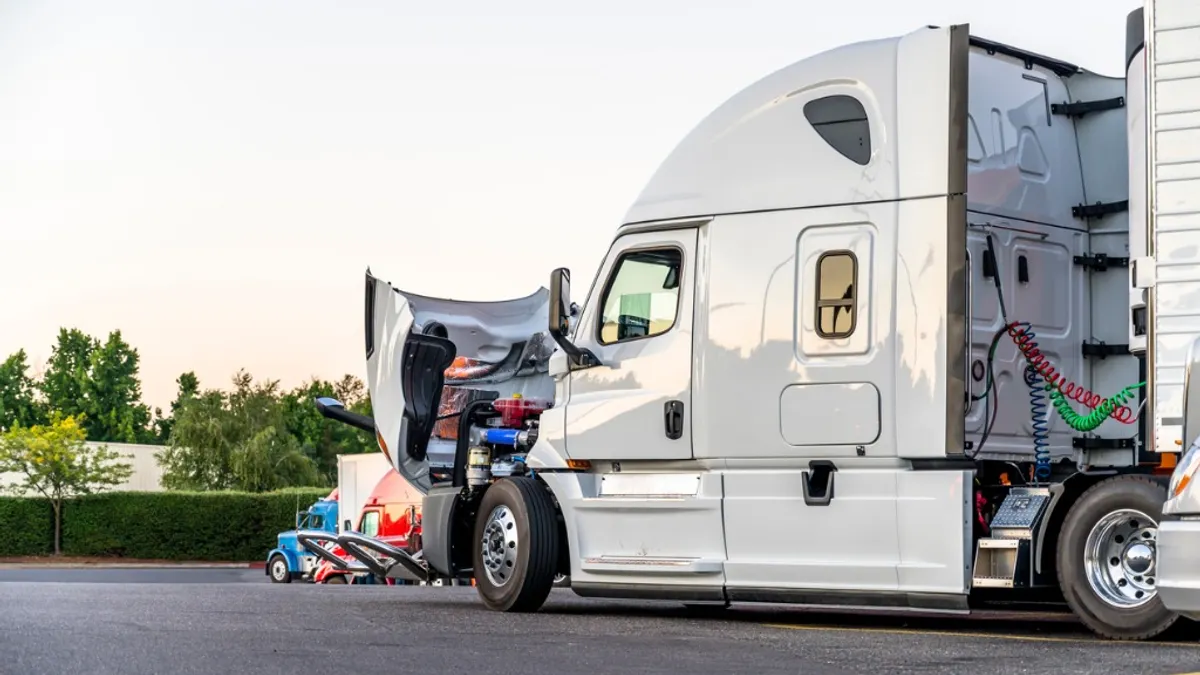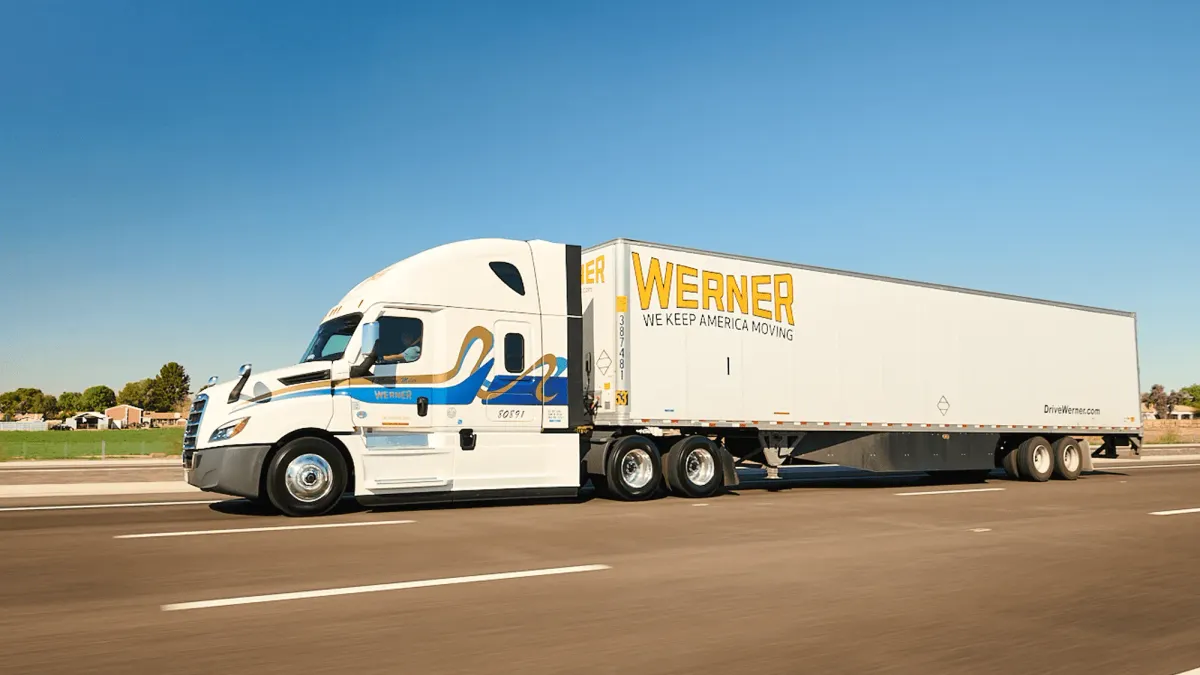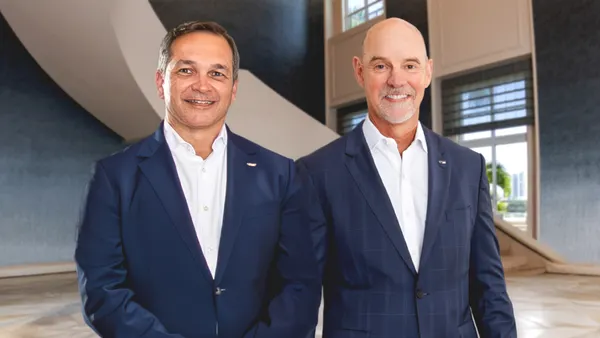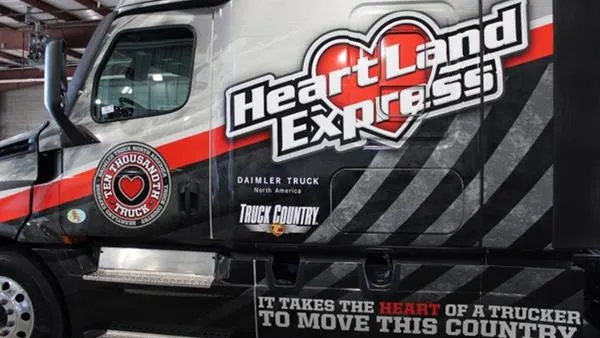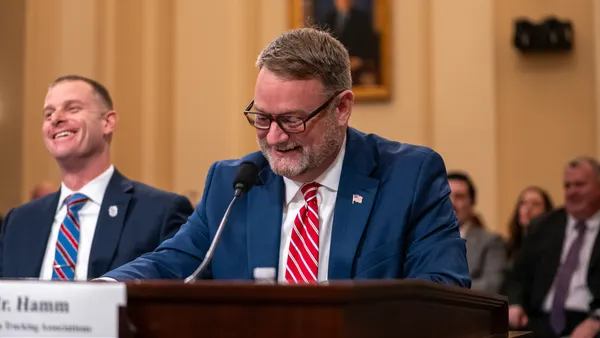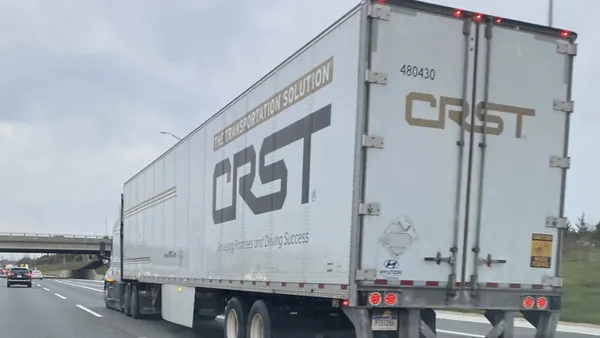This story is part of series on how C-suite roles are evolving in the trucking industry. Click here to read about how the role of COO has changed, and click here to read about the role of CFO.
When President Joe Biden decided to keep the ports of Long Beach and Los Angeles open 24/7, Matt Schrap's phone never quit ringing. As CEO of the Harbor Trucking Association in Long Beach, California, he deals with supply chain struggles every day — but duty has been calling (literally) a bit more nowadays.
Much of HTA's membership, made of 200 members operating thousands of trucks, relies on Schrap to decipher initiatives like this and answer their questions.
"COVID really shined a spotlight on how complicated the supply chains are and how challenging this function is for the industry," said Jane Bargmann, partner at executive search firm Heidrick & Struggles. The company places trucking and third-party logistics CEOs in both Fortune 500 and mid-tier companies.
Being the leader of an organization in the trucking industry today requires more than the typical job description calls for. An as the industry changes, so does the role of CEO. Schrap has witnessed this change over the years, having roles in the California Trucking Association and Velocity Vehicle Group. In his opinion, change is a good thing.
"If the position of CEO doesn't continue to evolve, then it will become stagnant," he said.
Changing with the pandemic times
Many of the changes to the duties of the CEO were spurred by the pandemic. JR Kays Trucking CEO Lisa Morris Fitzsimmons changed her duties in a big way.
Before the pandemic, she managed and oversaw the Pennsylvania-based company in the financial and maintenance areas. Now, with everyone working from home, her job has become much more hands on, she said.
She and her team have some challenges fluidly doing their jobs remotely while maintaining customer expectations.
"I'm picking up those pieces whether it be dispatch or driver safety," Fitzsimmons said. "I needed to be more tethered to those areas and that hasn't changed in the past 18 months. It's more to do with the increased demands on the entire industry, but also a testimony to how taxing all management positions have become."
But the role of CEO in the transport sector was changing even before the pandemic, particularly within the last five years. The need for technology innovation to drive greater speed and efficiency has become essential, said Bargmann.
"The CEO today has had to deal with a pace of change that's unprecedented and much more focused on leveraging technologies to outperform competitors and both attract and retain top talent," she said.
Schrap agreed and noted that CEOs need to understand the availability of technological advances in order to streamline management of the organization and move into a new era.
Leading the industry's future
Bargmann said the future of the industry will be centered on how trucking industry leaders continue to refine the value proposition to their customer base. Some of this will involve outsourcing and differentiation.
She also said she believes another focus will be on cultural development in organizations that are currently experiencing transformation due to mergers and acquisitions or spin-offs. The future will require leaders to take these new organizations to the next level of performance, she said.
Fitzsimmons, however, doesn't see her role as CEO shifting much in the future. She said she likes how her job description has evolved, particularly the hands-on aspects, such as mailing her own mail and doing her own filing. But more important to her is the role she plays in keeping her employees satisfied and motivated.
One of her drivers wanted to become a one-truck carrier operation, so the team at JR Kays helped him become his own carrier and even set up a brokerage for him. Now he can compete with the trucking company that helped him realize his dream, though he does supplement the company by providing carrier services for the abundant amount of freight they receive.
"That's a bad business model for JR Kays, but if our people want to become more successful in business, I won't hold them back, so instead, I support them," she said. "I'm a very different kind of CEO, one who works for the industry, always advocating for the drivers because without them, we have nothing."
"The CEO today has had to deal with a pace of change that's unprecedented."

Lisa Morris Fitzsimmons
CEO of JR Kays Trucking
Fitzsimmons' drivers are home more, every weekend, if that's their desire. Maybe they need a new lane to mix up their day, get home daily or run the country. Add that to driver-focused benefits, an open-door policy, and 24/7 availability and the company offers an attractive case for retention.
"We do whatever we can so our employees don't regret working for us. Because of that, we have dedicated and safety conscious drivers," she said.



